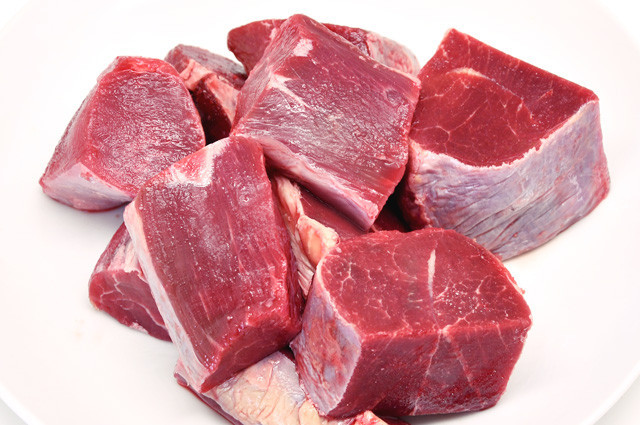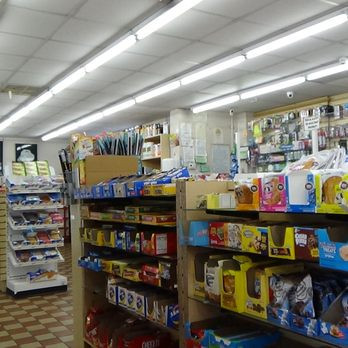views
The global halal food market is experiencing unprecedented growth, driven by an expanding Muslim population and an increasing consumer demand for ethically sourced, wholesome, and high-quality food products. Within this burgeoning market, halal deer meat, or venison, is emerging as a particularly intriguing option, offering a unique blend of nutritional benefits and adherence to Islamic dietary laws. The advantages of halal deer meat and delve into the evolving landscape of halal food accessibility, bringing these permissible options close to me.

The Appeal of Halal Deer Meat: Nutrition Meets Tradition
Deer meat, often referred to as venison, has long been prized for its distinct flavor and lean profile. When certified as halal, it offers an additional layer of assurance for Muslim consumers, aligning with their religious obligations. The concept of halal (permissible) extends beyond just the type of animal; it encompasses the entire process from ethical rearing to humane slaughter and preparation, ensuring purity and wholesomeness.
From a nutritional standpoint, halal deer meat is a powerhouse. It is significantly leaner than many conventional red meats, boasting lower saturated fat and cholesterol levels. This makes it an excellent choice for individuals focused on heart health and weight management. Venison is also an exceptional source of high-quality protein, crucial for muscle growth, repair, and overall bodily functions. Beyond protein, it's rich in essential vitamins and minerals, including iron, which is vital for energy and preventing anemia, and a comprehensive profile of B vitamins (B, B, B, B) that support nerve function and hormone regulation.
The appeal of halal deer meat is further enhanced by its often natural and wild sourcing. Unlike industrially farmed meats, wild venison is typically free from hormones, antibiotics, and other additives. This resonates deeply with consumers who prioritize natural, organic, and sustainably sourced food options. The distinct, earthy, and slightly sweet flavor of venison also offers a culinary adventure, lending itself to a variety of dishes, from stews and roasts to gourmet preparations.
The Halal Certification Process: Ensuring Purity and Compliance
For deer meat to be considered halal, it must adhere to strict Islamic dietary laws, known as Dhabiha. This prescribed method of slaughter is designed to ensure minimal suffering for the animal and uphold the sanctity of the food. Key requirements include:
- Animal Welfare: Animals must be healthy and alive at the time of slaughter, handled humanely, and not subjected to abuse.
- Method of Slaughter: A swift, deep incision must be made to the throat with a very sharp knife, severing the trachea, esophagus, and both jugular veins and carotid arteries, but leaving the spinal cord intact. This ensures rapid exsanguination (draining of blood), as blood is considered haram (forbidden).
- Invocation of Allah's Name: The butcher, who must be a Muslim of sound mind and body, is required to invoke the name of Allah (Bismillah, Allahu Akbar) individually for each animal before the cut.
- Prevention of Suffering: The slaughter must be performed quickly and mercifully, without stunning that could kill or injure the animal before the cut. Animals should not be slaughtered in front of other animals.
- Hygiene and Segregation: Halal carcasses must be chilled, processed, and stored strictly apart from non-halal products to prevent cross-contamination. Dedicated or thoroughly sanitized equipment is essential.
Halal certification bodies play a crucial role in verifying compliance with these standards. The certification process typically involves an application, a thorough audit of the production facility and supply chain, and ongoing surveillance to ensure continuous adherence to halal protocols. This rigorous process provides consumers with confidence and trust in the halal status of the meat they consume.
Halal Food Close to Me: A Growing Reality
The phrase halal food close to me is becoming increasingly commonplace, reflecting the burgeoning accessibility of halal options across the globe. This trend is driven by several factors:

- Growing Muslim Population: The rapid expansion of the Muslim population worldwide naturally fuels demand for halal products. This demographic shift has spurred businesses to cater to this significant consumer base.
- Increased Awareness and Demand from Non-Muslims: Beyond religious adherence, many non-Muslim consumers are also seeking halal-certified products due to their perceived association with ethical sourcing, higher quality, and hygienic practices. The emphasis on animal welfare and natural processing in halal practices aligns with broader consumer trends.
- Globalization and Diverse Product Ranges: As the halal industry globalizes, there's a wider array of halal-certified products becoming available, from traditional meats to processed foods, confectionery, and even alternative proteins like plant-based and cell-cultured meats. This diversification caters to evolving consumer needs and preferences.
- Technological Advancements: Technology is transforming the halal landscape. Online platforms and delivery services (like Uber Eats, as seen in search results) make it easier than ever to locate and order halal food. AI is also being leveraged to streamline halal certification processes and forecast market trends, further enhancing accessibility.
- Harmonization of Standards and Infrastructure Investment: Efforts by global organizations and regional authorities to harmonize halal standards and invest in halal infrastructure are paving the way for smoother trade flows and more consistent consumer experiences. This reduces complexity and encourages wider adoption by businesses.
- Emergence of Dedicated Halal Businesses: From local halal butcher shops to dedicated halal restaurants and even specialized food trucks, businesses are emerging to specifically serve the halal market. Many online meat shops now offer halal venison, making it accessible even in areas where physical stores might be limited.



Comments
0 comment